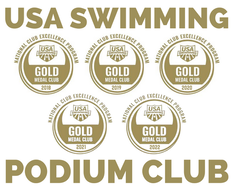|
The Burden of Expectation: Can you shoulder the weight of expectations?
Post published by Jim Taylor Ph.D. on Jan 27, 2015 in The Power of Prime Where Expectations Come From Expectations can come from outside of you or from within. Typical sources of external expectations come from family, coaches, and friends. Here’s a line I often hear being said to young athletes by friends and acquaintances that strikes absolute terror into their hearts: “I just know you’ll win.” Though such an expression of confidence is well intentioned, it is also painfully misguided because it creates a situation where anything less than victory will mean failure and disappointing others. You may also create your own expectations. You may be so driven to achieve your goalsthat this determination causes you to focus too much on results creating self-imposed pressure, for example, “I better win or this will have been a total waste of time.” At a deeper level, expectations arise from forces within you that you may not even be aware of. The most common source of expectations is fear of failure, in which you absolutely must meet those expectations or else something terrible will happen. What are those awful things that might happen? The most common ones include your parents won’t love you, your friends won’t like you, you’ll be a total loser, all of your efforts will have been wasted, and your athletic dreams will die. Now that is pressure! How to Deal with Expectations If the expectations are coming from others, you have several options. First, you can avoid those people like the plague. If you’re not near them, you won’t be able to hear those well-intentioned, though misguided, expressions of confidence in you (“You’re going to win for sure!”). Also, if you’re good enough to receive media attention, stop reading about or listening to it. Second, you can tell those people to just “Shut up!” (in a nicer way, of course). Third, you can change the way you think about their expectations. For example, you can say “I really appreciate their support and encouragement.” The key is to distance yourself from those expectations because they don’t do you any good. If the expectations are coming from within, there are several steps you can take. In an ideal world, you would let go of any and all outcome expectations and just focus on what you need to do to perform your best. That, however, is easier said than done because the causes of the expectations are often unconscious (e.g., perfectionism, conditional love, fear of failure) and it usually requires some pretty intense work with a sport psychologist to exorcize them from your mind. So, what can you do right now to lift that burden of expectation before the big competition? Here are a few ideas: · Focus on the 5 Ps(link is external): Perspective, process, present, positive, and progress. If you focus on them, you won’t be focusing on the expectations. · Change your physiology. Expectations inevitably create anxiety and tension. By actively taking steps to relax, for example, with deep breathing and muscle relaxation, you remove the physical symptoms of the expectations. · Distract yourself. Talk to other people or listen to music, anything that will keep your mind off of the expectations. · Create good emotions. Expectations can cause you to feel frustration, worry, and fear. To counteract those, do things that are fun and will inspire good emotions such as excitement, pride, and joy. · Do mental imagery. See and feel yourself performing your best. This will redirect your attention away from the expectations, give you confidence, and refocus you onto what you need to do to achieve your competitive goals. · Shift your view of the expectations away from being a threat to avoid and onto a challenge to be pursued. Ultimately, the degree to which expectations impact how you perform in big competitions will depend on how you finish this statement: “If I don’t do well, ________.” If you say, “If I don’t meet my expectations, it’s the end of the world,” you’ve turned those expectations into a life-or-death situation, and you’re pretty much doomed to a poor result. But, if you say, “If I don’t meet my expectations, I’ll be disappointed, but I’ll be OK,” you have relieved yourself of that burden of those expectations and freed yourself to perform your very best when it matters most Comments are closed.
|
Archives
December 2023
Categories |
||||||
USA Swimming Olympic Trial Qualifiers |
LIAC Safe Sport Coordinator |
|
1996
Jessica Foschi Amy Taylor 2000 Dan DeMarco Jessica Foschi Brendan Neligan Kara O'Reilly Krissy Sendrowski 2004 Sarah Daly Jessica Foschi Brendan Neligan |
2008
Elizabeth Goldson Emily Kelly Daphne Skelos 2012 Roger Dent Erik Heinemann Emily Kelly Oliver Lee Michael Lennon Daphne Skelos Jack Wagner 2016 Maggie Aroesty Kristen Romano |
2020
Maggie Aroesty Ryan Brown Cavan Gormsen Tess Howley Lauryn Johnson Sophia Karras Jason Louser Chloe Stepanek Billy Swartwout 2024 Cavan Gormsen Sean Green Tess Howley Martin Perecinsky Chloe Stepanek |
Carol Withus [email protected]
Michael Lennon [email protected] (516) 378-8467 To deal with a SafeSport concern, contact USA Swimming at (719) 866-4578 Contact the U.S. Center for Safe Sport to make a report. Call (833) 5US-SAFE (587-7233) or use the online reporting form or find more information at http://www.uscenterforsafesport.org/ |

